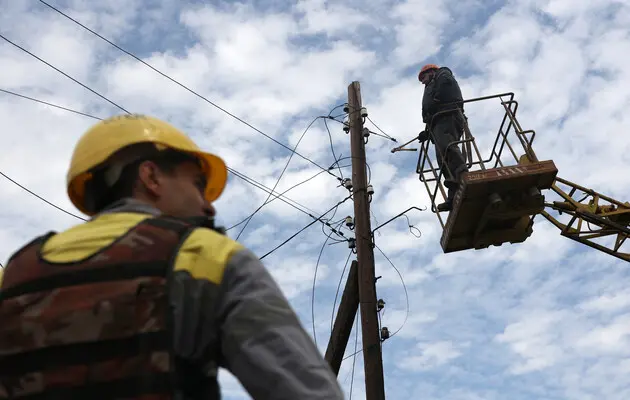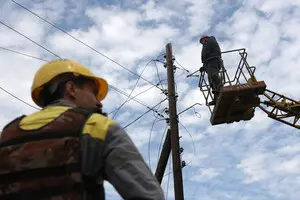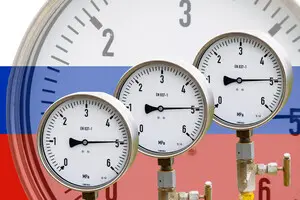Attack on Energy System: Getting for Winter the Russian Way

The job of a missile and drone interceptor is not an easy one. You are aware of the inevitability of impact; the only question is when and where it will hit, how much destruction it will cause, and how long the recovery will take.
The latest attack on the energy system was the ninth in five months. In total, there have been about thirty major strikes since the beginning of the war, not counting the smaller ones.
For the first time this year, the enemy did not attack thermal power plants, focusing on key substations in northeastern Ukraine, near Kyiv and in the west of the country. The strike affected 15 regions.
The air defense neutralized three quarters of the missiles and most of the drones, but quite a few made it through (luckily, some of them just fell down near the substations). This was partly helped by the work on facility sheltering.
The use of cluster munitions, which damage unprotected equipment, albeit often not critically, became a novelty. The main problem is that unexploded ordnance makes recovery works difficult. The main question is: why do we, in the third year of the war, still have unprotected equipment?
Thermal power plants have been hit with such ammunition before. Now Ukrenergo will have to look for countermeasures. Obviously, this is not the last such raid, and the enemy will be honing its skills. We need to get better at it, too.
The fly-in blast at the substation of the Kyiv hydroelectric power plant in Vyshhorod was witnessed by thousands of people. The dam could not be destroyed in such a way, which hardly makes things better for the hydroelectric power plant; on the bright side, most of the missiles aimed at it were intercepted.
But there is little reason for optimism. Out of more than two hundred missiles and drones, over thirty hit critical infrastructure, such as substations and gas storage facilities. Once again, to the joyful squeals of the enemy, the country has been plunged into darkness. We are sure to have hours-long blackouts, scheduled and unscheduled, for the coming weeks.
The raid once again showed the severe shortage of air defense assets and problems in communications with partners, as our defenses are still limited, and the enemy is skillfully using this as a tactical advantage. The drones, although they were mostly shot down, zigzagged over our territory for hours, identifying air defense areas and making it easier to plan the next missile strikes.
The problem of the shortage of anti-aircraft missiles has been discussed for a long time, but our partners cannot be said to have fulfilled their obligations in full.
The story of literally begging for only seven air defense systems when there is a need for at least two dozen does not do the West any credit. Especially considering that some of these seven got stuck somewhere along the way.
Not everything is going smoothly with the supply of simpler systems. Deliveries of even the largely unnecessary defective S-300s, which we could have repaired and used, are stalled. But for them, the sellers charged a prohibitively high price. As always, business is business. The only thing at stake is additional human casualties and destruction. So maybe making money is not the main thing after all?
The key problem in neutralizing the strikes is the lack of permission to hit the locations of the enemy’s strike forces with long-range Western guns. It is simple: the enemy’s strike aviation with gliding bombs distracts our air defense systems by forcing us to move them into the frontline zone. This leads to unnecessary losses of people, air defense and to the consumption of acutely scarce anti-aircraft missiles. The same airplanes destroyed at airfields would have saved us resources to cover cities and energy infrastructure.
Already now, with modest means, often hastily assembled literally in the garage, we have managed to unnerve the enemy’s aviation. Scaling up this success is a necessity.
A full-fledged strike force would have had a much greater effect. They’d be, as they say nowadays, a gamechanger. But… there are more red lines and “fear of escalation.”
It depends how you look at it. The sight of the wreckage of a Tu-95 at an airbase or the deckhouse of a sunken submarine in Novorossiysk are extremely conducive to both de-escalation and the green transition, along with the overall reduction of the planet’s carbon footprint. The sooner such images become commonplace, the better.
Fighting with tied hands against an inherently stronger thug is hardly a pleasure. The Kremlin respects only strength, as Winston Churchill said 80 years ago. The fewer attempts to take into account the desires of this gopnik, the (suddenly) greater will be his desire to withdraw from the war.
As has become customary in recent months, the raid hit both gas transportation system facilities and underground gas storage facilities. The enemy reported “damage to gas compressor stations in Lviv, Ivano-Frankivsk and Kharkiv regions.” Well, the attempt to disrupt gas injection for the winter and disrupt gas supply has been recorded. Kharkiv region accounts for about 40% of the country’s gas production.
So far, gas workers have been able to cope with such blows. No, it is not easy at all, although the images of fires and broken equipment have become familiar. Nevertheless, gas reserves are being accumulated. Yes, foreign traders have reduced gas supplies because of the understandable risks. Now there is four times less foreign gas in storage than last year — about 0.6 billion cubic meters. But the catastrophe is still far away. The almost normal life of gas workers in the warring country continues: strike — repair — injection/release.
Ironically, the biggest “failure” of gas producers to date is the blocking of gas production at the Kharkiv Sakhalin field by our own government agencies, which saved Russians ten Iskander missiles. The blockage is still there. The Kremlin should obviously reward those involved. With a medal or a diploma.
However, do not be under any illusions: as winter approaches, the attacks on gas production and storage areas will intensify. Especially after the termination of the gas transit contract at the end of 2024. There will be no checks and balances left.
The problem is known. Preparations are underway, modeling of work scenarios has been repeatedly conducted. The question is the appropriateness of preparations. It is clear that many “glitches” will pop up during winter strikes. The question is the readiness to correct them quickly. And there is less and less time.
At the same time, at the level of reflexes, it is necessary to accustom the enemy to the fact that a blow to Ukrainian infrastructure means a couple or three burning refineries in Russia. Even if it causes a rise in prices at someone else’s gas stations and, horrors, volatility on world markets. We will sympathize with those experiencing such a problem, but our stakes are somewhat different.
The Russians want to freeze out three tens of millions of people and undermine the economy thanks to which these people survive. Somehow, this is more important than changing price tags.
Please select it with the mouse and press Ctrl+Enter or Submit a bug














 Login with Google
Login with Google